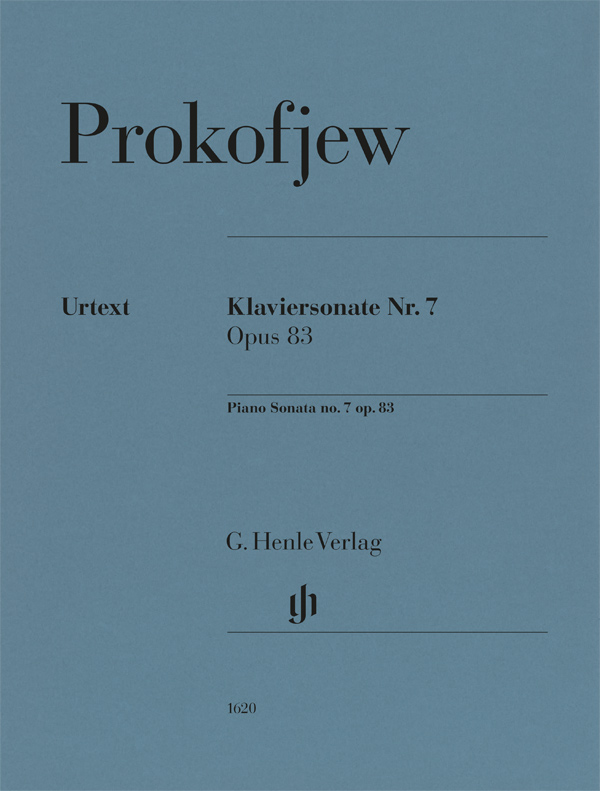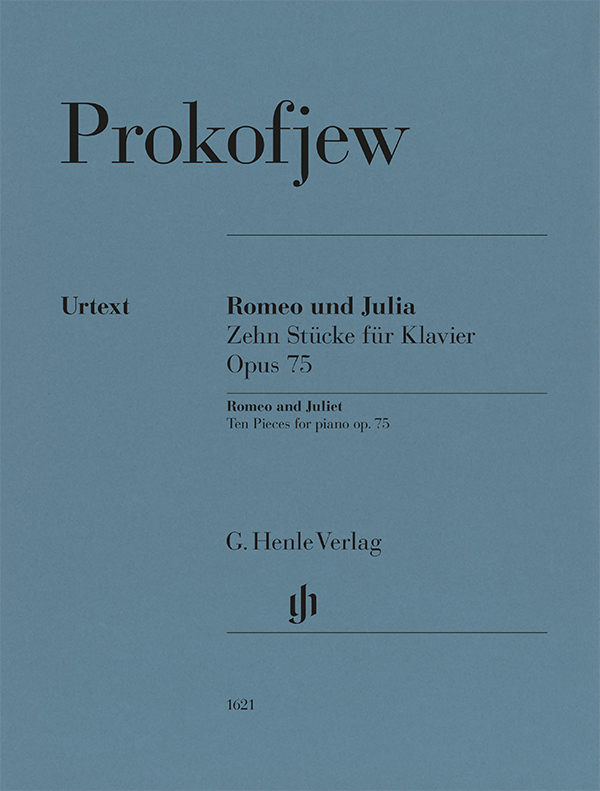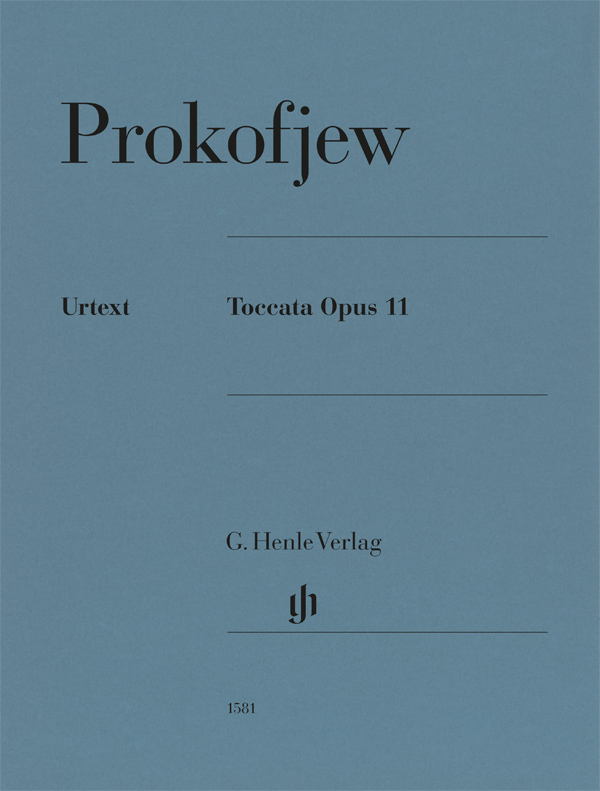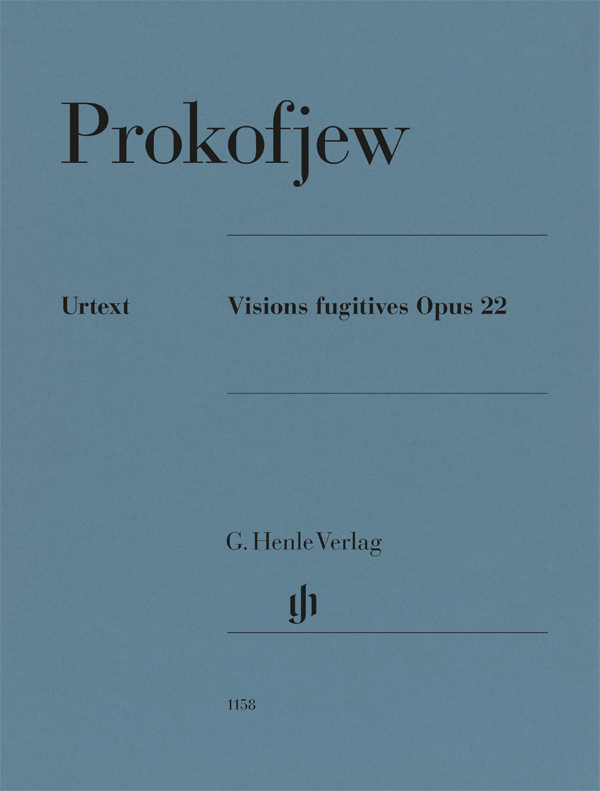

Sergei Prokofiev
Visions fugitives op. 22
Prokofiev did not compose his Visions fugitives – 20 “fleeting visions” – in one go, but in clusters between 1915 and 1917, immediately before the Russian Revolution that compelled him to leave his native country in 1918. We know from his diaries that at least some of them owe their existence to extra-musical impulses. Thus several pieces were inspired by people close to him. Others impart his emotional reaction to the political situation with its menacing brutality. According to his own statement, for example, no. 19 “was inspired by the events of February 1917 in Petrograd”, during the Revolution’s first phase. Technically the pieces are not too demanding, and are also often used in teaching. They now appear for the first time in an Urtext edition that considers all the musical sources created during the composer’s lifetime. In his preface, Prokofiev specialist Simon Morrison provides biographical context for the genesis of this fantastic piano cycle.
Content/Details
About the Composer
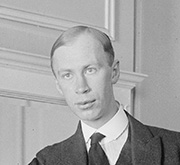
Sergej Prokofjew
Together with Shostakovich, Prokofiev is the Soviet Union’s most important composer. He left behind a
wide-ranging oeuvre from the most modern to neo-classically simple works, from
propagandistic commissions to compositions that the CPSU rejected as being formalistic.
| 1891 | Prokofiev is born on 23 April in Sontsovka (Ukraine), the son of a farmer. |
| 1904–14 | He studies at the St. Petersburg Conservatory. |
| from 1908 | He is a member of the circle around Serge Diaghilev, who occupies himself intensively with contemporary music. |
| 1911–18 | Avantgarde compositions such as Sarcasms, the Piano Concertos nos. 1 and 2, “Visions fugitives”, “Scythian Suite” are dismissed as being futuristic. |
| 1916–17 | The “Symphonie Classique”, drawing on classical models, brings him international renown. |
| 1918 | Prokofiev leaves the Soviet Union and travels to the USA, where his opera “The Love for Three Oranges” is performed in Chicago, and then travels to Paris in 1922. He enjoys a close cooperation with Diaghilev and writes ballet compositions. |
| 1919–23 | He composes the opera “The Fiery Angel”, which receives its first performance posthumously in Venice in 1954. |
| 1923–25 | The composer continues to develop his avantgarde musical language, for instance in the 2nd Symphony. |
| 1927 | He enjoys a successful concert tour around the Soviet Union. |
| 1929 | “The Gambler” is premiered in Brussels. |
| 1936 | Prokofiev returns to his home country. He writes compositions in line with the cultural ideology of the Soviet Union. He turns towards a simpler music as early as the beginning of the 1930s. “Peter and the Wolf” is composed. |
| 1946 | “The Engagement in the Monastery” is performed in Prague and “War and Peace” in Leningrad. |
| 1948 | He is accused of formalism. |
| 1953 | Prokofiev
dies on 5 March in Moscow. |
About the Authors

Norbert Gertsch (Editor)
Dr. Norbert Gertsch, born in 1967 in Rheinkamp/Moers, studied piano solo at the Mozarteum in Salzburg and read musicology and philosophy at the Paris Lodron University in Salzburg and the Ruperto Carola University Heidelberg on a scholarship from the “Studienstiftung des Deutschen Volkes”. In 1996 he wrote his doctoral thesis on Ludwig van Beethoven’s Missa solemnis (as part of the New Complete Edition) under Ludwig Finscher.
In the following year, he began to work at G. Henle Publishers, initially as an editor for electronic publishing. After working on a two-year project (1999–2000) sponsored by the German Research Foundation (DFG) preparing a new Beethoven Catalogue of Works, he became a scholarly editor at G. Henle Publishers. In 2003 he became Editor-in-Chief, in 2009 Deputy Managing Director and Head of Publishing. As of 1 January 2024, the Executive Board of the Günter Henle Foundation has appointed Dr. Norbert Gertsch, as the new managing director, succeeding Dr. Wolf-Dieter Seiffert.
Gertsch has published many Urtext editions for G. Henle Publishers, including volumes for a new edition of Beethoven’s Piano Sonatas together with Murray Perahia.
Product Safety Informations (GPSR)

G. Henle Verlag
Here you can find the information about the manufacturer of the product.G. Henle Verlag e.K.
Forstenrieder Allee 122
81476 München
Germany
info@henle.de
www.henle.com
Boris Giltburg traverse les Visions fugitives avec un œil de pédagogue, veillant à ce que ses propositions soient simples et abordables par le pianiste amateur.
Pianiste, 2024Dezelfde kwaliteit leverde Henle ook met de Visions fugitives opus 22. Morrison schreef weer de voorgeschiedenis en Boris Giltburg zocht de vingerzettingen uit. Dit boek is een juweel met nog een groter bereik dan de Toccata omdat menig docent deze suggestieve werkjes gebruikt om de leerling de bijzondere Russische wereld binnen te loodsen.
Pianist, 2024Simply put, that older edition is rendered redundant by this exemplary new publication, and anyone considering playing or teaching Visions Fugitives must undoubtedly now turn to the new Henle edition for its unparalleled scholarship, practicality, accessibility, and clarity. … Henle’s stunning new edition will, we must hope, awaken fresh interest in this genuinely stupendous masterpiece.
Pianodao, 2024recommendations
autogenerated_cross_selling
Further editions of this title
Further editions of this title


